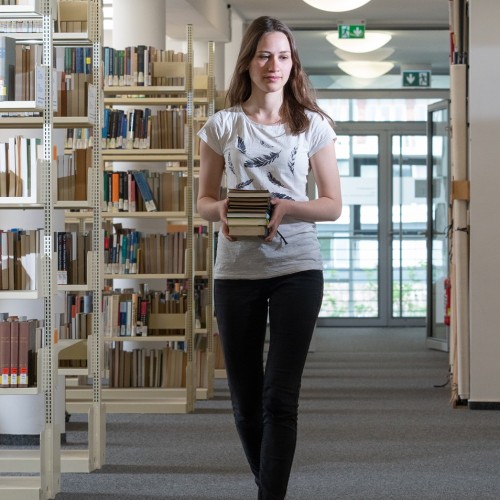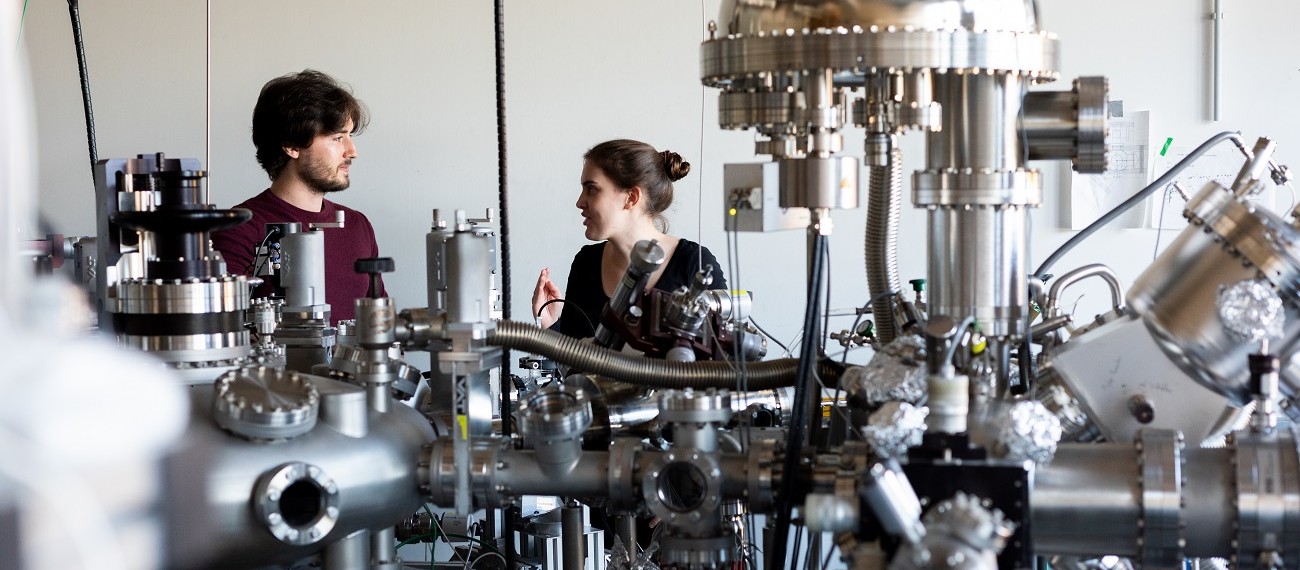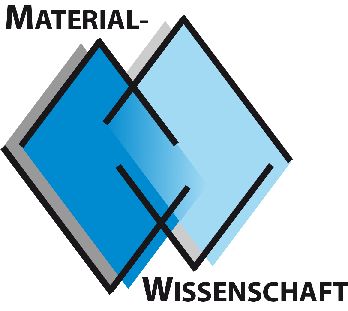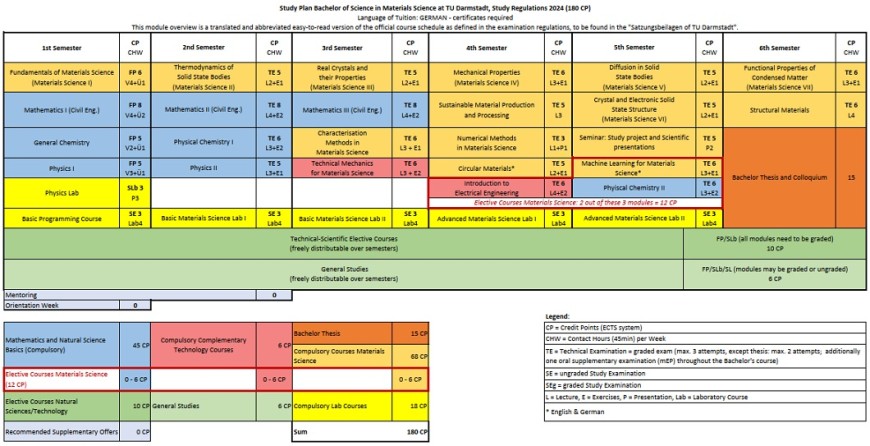Basic facts about our Materials Science Bachelor's programme
- Degree: Bachelor of Science (B. Sc.)
- 6 semesters standard period of study (full-time)
- 180 ECTS Credit Points
- Start of studies: only in winter semester
- Application deadline: typically 31.8.
- Course language: German
- Admission-free (no limited number of seats)
This degree program suits you if …
- you are looking for a generalized course of study that will subsequently allow you to specialize,
- you are interested in scientific contexts,
- you have a solid knowledge of math, physics and chemistry,
- you have technical understanding and like logical thinking,
- you have good comprehension skills and
- you have the desire to dedicate yourself to your studies with discipline and ambition.

Study Organisation
Detailed information on the study programme, including the module handbook, study and examination schedule, and the course catalogue can be found on the website of the TU Darmstadt Central Student Advisory and Orientation Office.




